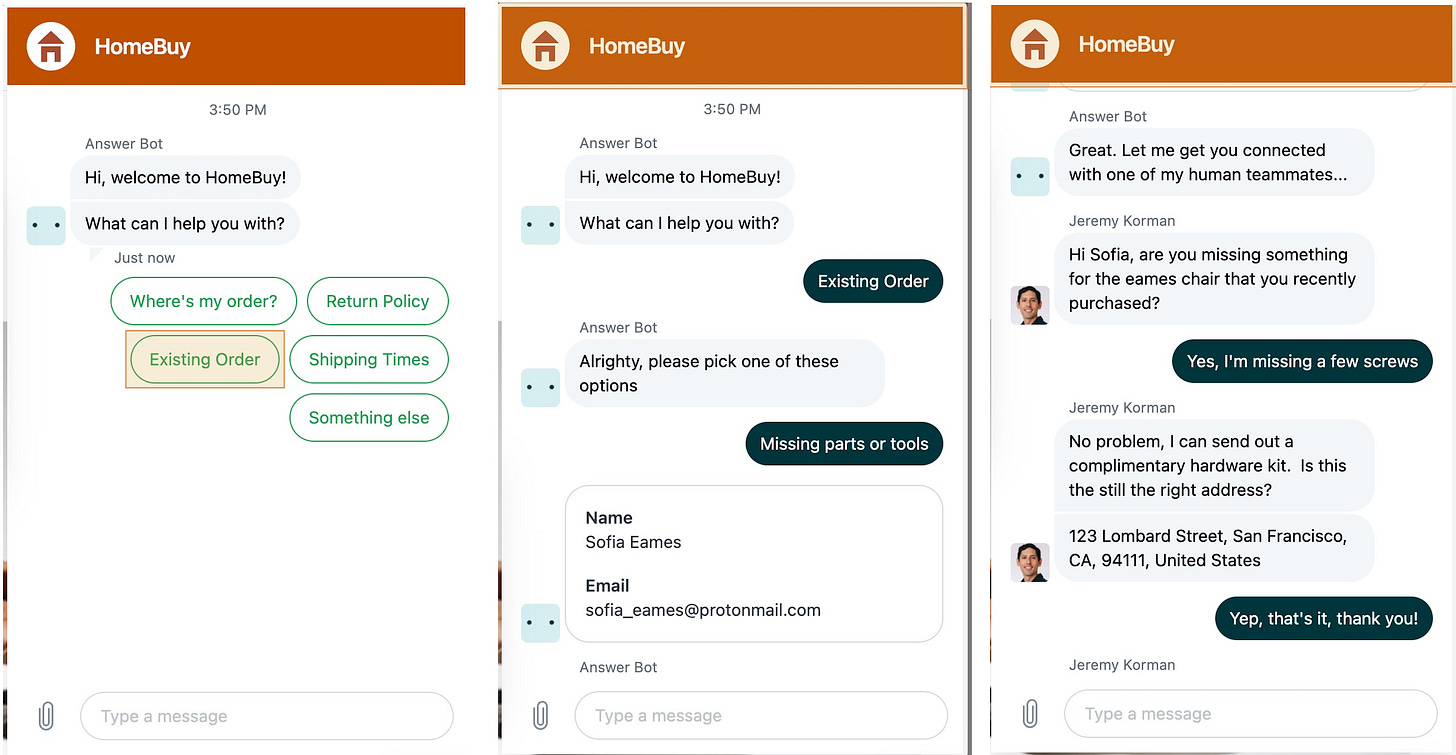207a. The Conversation Isn't Real
Because you're talking with a human, it doesn't mean they're alive
Editor’s Note: This is the first time (and probably last) that I’m sending out two issues at once. I felt it was important to do it in this particular instance. The first issue (this one) relates to advances in AI. The second issue (207b will be in your inbox right…about…NOW) relates to how the current AI could impact your business. Just had to get that off my chest. It’s off. Thank you.
Remember watching “The Matrix” for the first time?
If you’re anything like me, you walked away from the movie mystified by what is actually real in this world and what isn’t.
I think about that concept a lot. Maybe too much.
Are we really humans or are we simply some type of simulation? And what’s the difference?
How would we even know if we were a simulation?
In the Matrix, humans created computer programs that simulated reality. The more the computer programs were used, the smarter they got.
That’s a real thing.
It’s called artificial intelligence. No doubt you’re aware of the concept. It’s not a new one.
I’m just not sure if you realize how close we are to the Matrix movie becoming reality.
You might wanna sit down for this one. Maybe pour yourself a drink.
You take the blue pill... the story ends, you wake up in your bed and believe whatever you want to believe. You take the red pill... you stay in Wonderland, and I show you how deep the rabbit hole goes
It’s time to take the red pill.
Artificial Conversations
Seven weeks ago (on November 30, 2022), a company called OpenAI released their conversational AI product called ChatGPT.
In just 1 week, ChatGPT got 1 million users. They got 22 million users in their first month and are now expected to reach 1 billion users (15% of the entire world population) before the 1st anniversary of their launch. Oh, and they’re projecting $1b in revenue in their 2nd year of business.
Right now it’s free (and it’s costing the company ~$5M per month to keep it free).
The New York Times (and a massive amount of other media sources) have called it “the best conversational AI chatbot that has ever been released to the public”.
Microsoft invested a few billion in the company and currently owns 49%. Rumor has it they are putting another $10b into the organization.
That’s how important it is.
The fact that it could very meaningfully destroy Google is not lost on Microsoft. (More on that in a minute.)
First, let me explain why you’re going to be using ChatGPT a lot in the near future.
A Quick Explanation
A conversational chatbot is an AI engine that interacts in a conversational way. That’s the most important thing about ChatGPT specifically - the amazing way it has human-like conversations.
You’re already familiar with the concept of conversational chatbots, you just may not realize it. The image below is an example of what existing conversational chatbots are like.
The vast majority of them are, like the example above, pretty basic. Notice how the chatbot gets basic information until such point that it then hands off the communication to a human in order to actually solve the problem. It’s not currently replacing any humans, just - theoretically - helping them do their job better.
(Editor’s Note: Highly questionable)
For the most part, I’ve found conversational chatbots to be frustrating for the exact reason as exemplified above: I know I need to speak to a human who’s going to ask me the same damn questions I’m trying to answer with the idiotic chatbot, so let’s just stop this ridiculous charade and get to fixing my problem so I can get back to enjoying my bag of Flamin’ Hot Cheetos.
ChatGPT changes all that.
In just 7 weeks, they’ve made all the other existing chatbot businesses seem archaic.
So tighten your seatbelt.
Our ride through reality is about to hit some turbulence.
The Conversation
Imagine a person who knows everything.
Not like my friend Gerry, who reads very little but somehow knows a lot about a lot. I’m talking about a person that literally knows everything about almost everything.
Somebody, for instance, who has 175 billion parameters (soon to be 1 trillion) at their immediate disposal.
Now imagine you can have a conversation with that person. They can tell you detailed instructions on whatever you want to know. Say, for instance, you are curious about how to make toast so it doesn’t burn and in the next second you’re curious to know the names of the three exoplanets closest to earth, and then you realize you need recommendations for gifts to give your 61-year-old Aunt Bertha on the 1st anniversary of her sobriety (and thank goodness she’s finally sober after that incident with Uncle Leo’s toupee. Awwwwk-ward.)
That is ChatGPT.
ChatGPT does a remarkable job of understanding what you’re asking and an even more remarkable job of giving answers in a mostly human-like tone.
It can write articles, white papers or social media posts for you.
It can write stories or do your homework.
It can write computer code in any coding language or fix the errors you already have in your code.
If you really want, it will even describe how to change a tire as if it were written in the King James Bible.
The Future Down The Rabbit Hole?
Now that you know the basics of what ChatGPT is doing, it’s time to check your parachute. We’re jumping down the rabbit hole and this one’s pretty deep.
To read more, you’ll have to go to article 207b, where we will chat about such things as:
Why Google is in serious trouble #GoogleKiller
How you can save money on legal fees right now
Your support team is dead, long live your support team
How to have a 1-on-1 video chat with your celebrity crush
Time travel is real










Hmmm...who actually wrote this article?